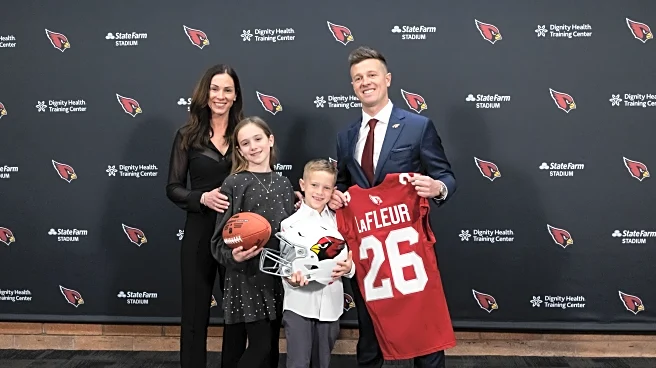What is the story about?
What's Happening?
The FDA has introduced a 'green list' of overseas sources for weight-loss ingredients to prevent illegitimate and potentially unsafe supplies from entering the U.S. market. This list identifies sources of GLP-1 active pharmaceutical ingredients (APIs) from plants that comply with FDA standards for manufacturing practices. The initiative aims to block non-compliant shipments by allowing border control to seize them without inspection. This move is significant for companies like Novo Nordisk and Eli Lilly, which face challenges from compounding pharmacies producing rival versions of their obesity therapies. Despite the drugs no longer being in short supply, some companies continue to provide compounded versions under exceptions for personalized treatments, a practice currently under legal scrutiny.
Why It's Important?
The FDA's action is crucial in safeguarding consumers from poor-quality compounded drugs containing foreign-made APIs that may lack appropriate manufacturing controls. The demand for GLP-1 agonists, known for their weight-loss benefits, has surged, leading to a proliferation of companies offering these treatments. By interrupting the supply of APIs used in compounding, the FDA aims to protect consumers from potential health risks associated with dosing errors and unapproved formulations. This regulatory measure supports Novo Nordisk and Eli Lilly in maintaining the integrity of their products and ensures that U.S. consumers receive safe and effective medications.
What's Next?
The FDA will continue to allow the legal importation of GLP-1 APIs from compliant manufacturers and will not limit legal compounding practices. However, it will strengthen oversight of imported APIs and crack down on illegal drugs entering the U.S. market. The agency has expressed serious concerns about compounded versions of semaglutide and tirzepatide, including adverse events that have led to hospitalizations. FDA Commissioner Marty Makary emphasized the importance of ensuring the safety of prescription drugs for Americans, indicating ongoing efforts to protect consumers from substandard GLP-1 drugs.
















